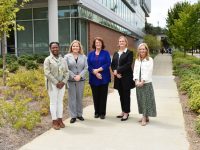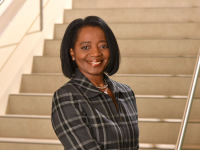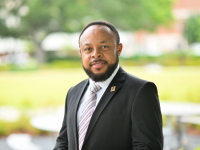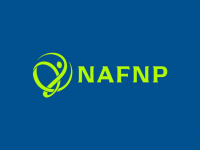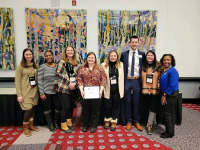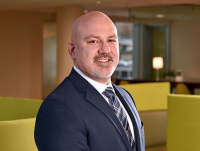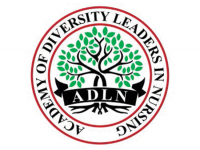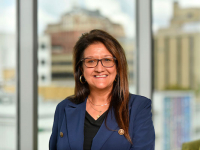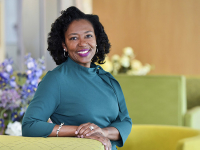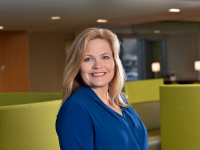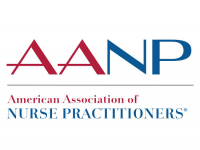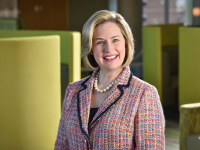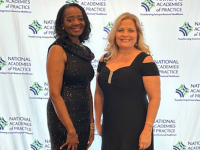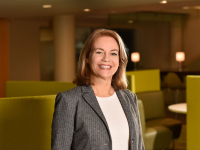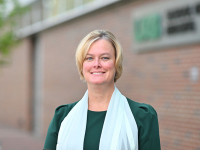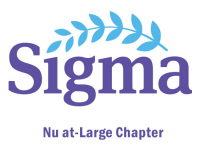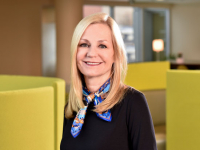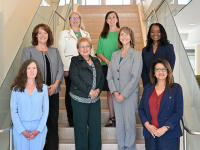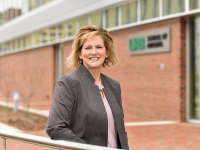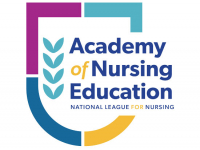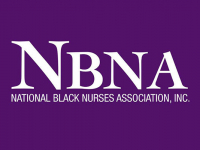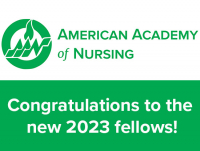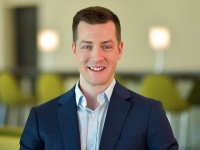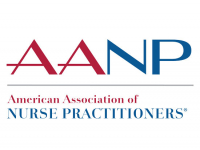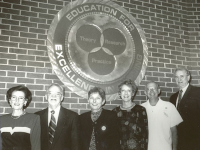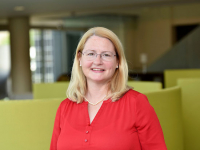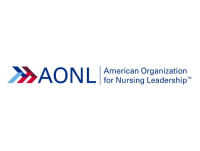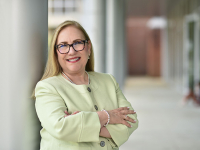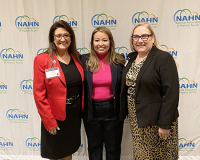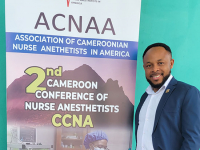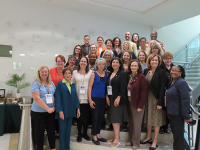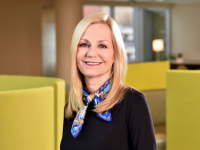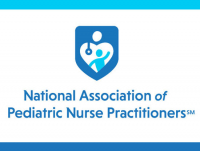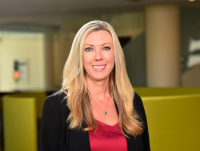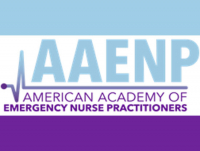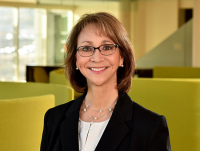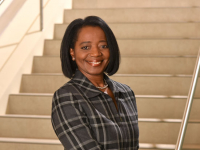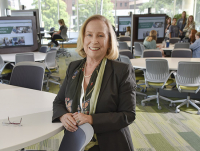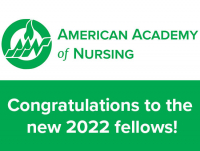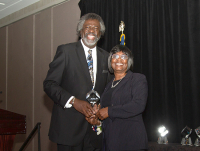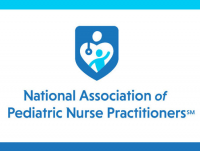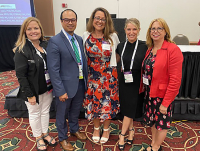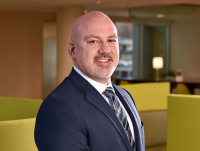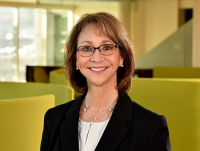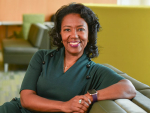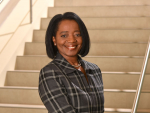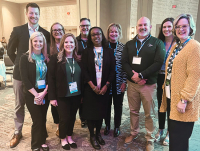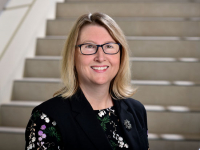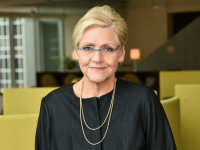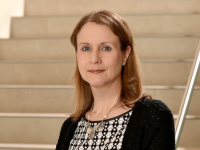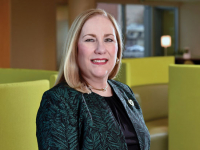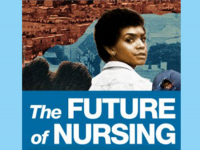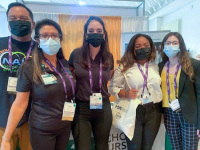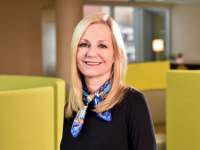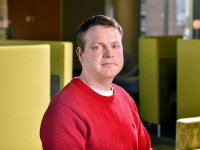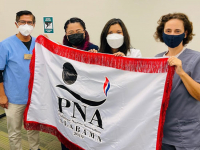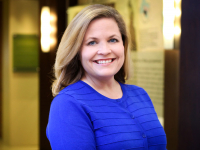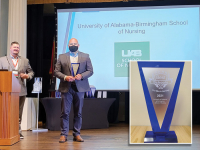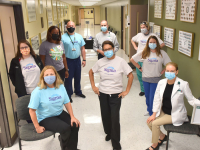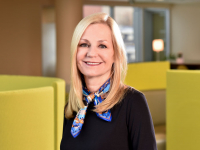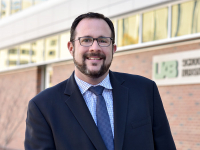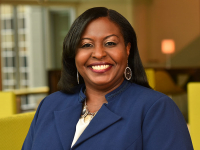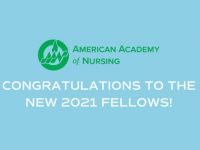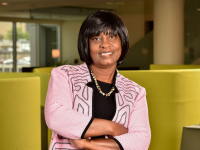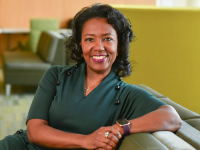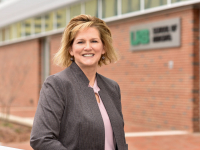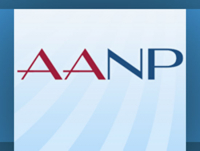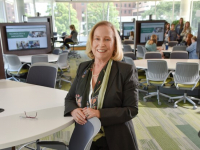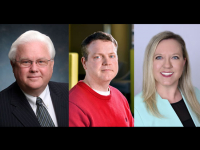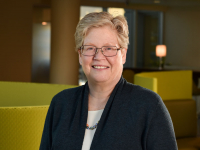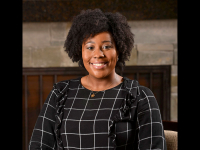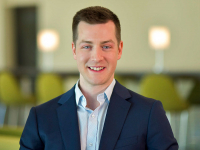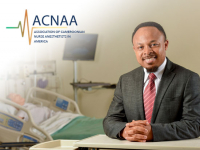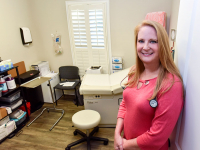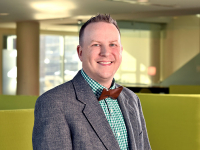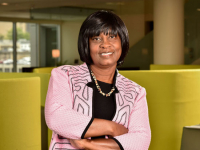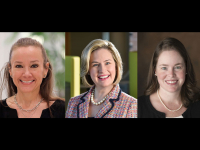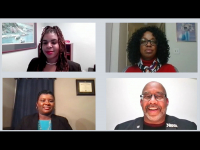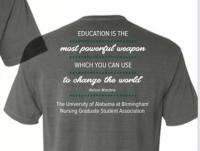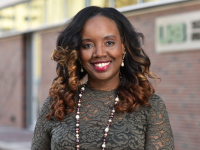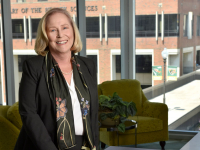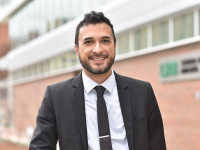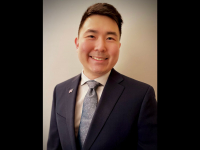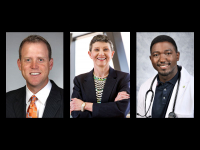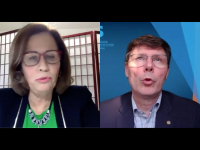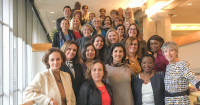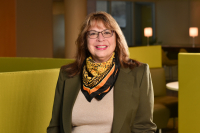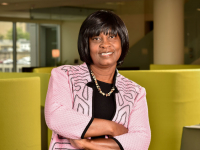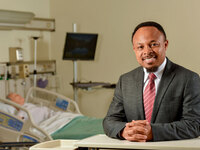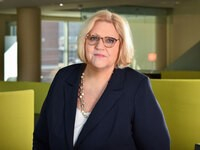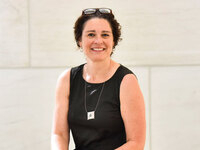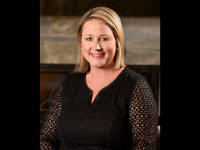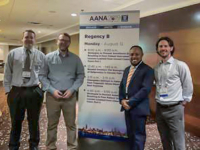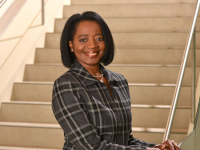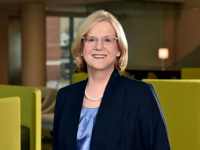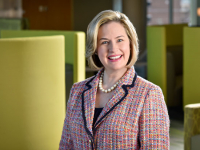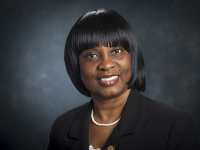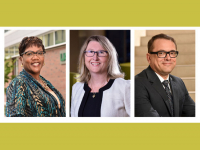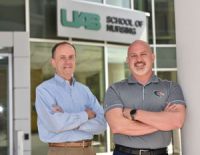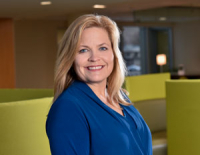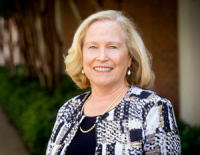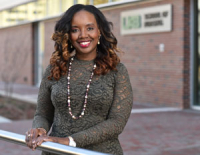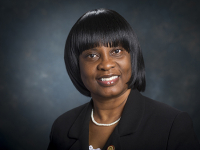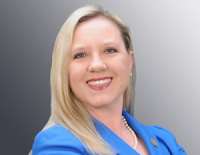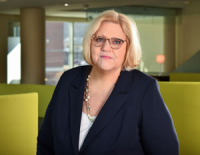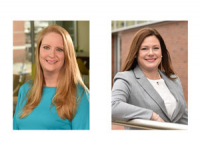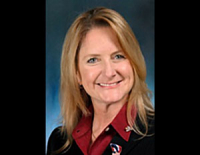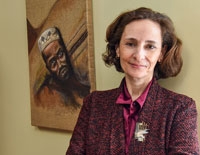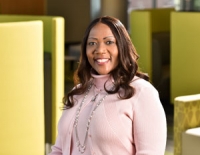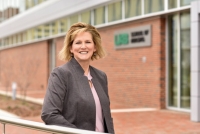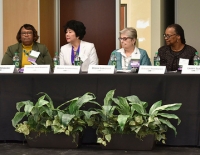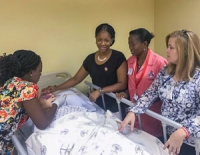The University of Alabama at Birmingham (UAB) School of Nursing has long focused on the concept of “think globally, act locally” in preparing the nurse leaders, scholars and researchers of the future.
Building on the strong foundation laid by previous PAHO/WHO Deputy Director Lynda Wilson, PhD, RN, FAAN, and the invaluable knowledge and support of Program Coordinator Lisa Theus, the School’s Pan American Health Organization (PAHO)/World Health Organization (WHO) Collaborating Center for International Nursing is poised to grow not only its global influence but its local influence as well under its new Deputy Director, Associate Professor Ada Markaki, PhD.
Markaki has worked since she joined the faculty in August 2016 to position the School to capitalize on its past PAHO/WHO successes and the growing momentum surrounding global health.
 Dr. Ada Markaki, who became deputy director of the PAHO/WHO Collaborating Center in August 2016, believes the UAB School of Nursing must build on its international successes of the past by establishing global health leadership at home.“Dr. Wilson’s international work is very well known,” Markaki said. “Now the School has to look into ways of establishing global health leadership at home. I see us taking it to the next level, making it truly interprofessional and developing long-lasting sustainable partnerships across UAB, the city and the state.”
Dr. Ada Markaki, who became deputy director of the PAHO/WHO Collaborating Center in August 2016, believes the UAB School of Nursing must build on its international successes of the past by establishing global health leadership at home.“Dr. Wilson’s international work is very well known,” Markaki said. “Now the School has to look into ways of establishing global health leadership at home. I see us taking it to the next level, making it truly interprofessional and developing long-lasting sustainable partnerships across UAB, the city and the state.”The idea of having a global understanding of transnational health issues, social determinants, and solutions while using the perspectives to address health care needs at the local level or “glocalization” is currently gaining traction throughout the nursing profession.
In a recent message to the membership of the National League for Nurses (NLN), Chief Executive Officer Beverly Malone, PhD, RN, FAAN, described “glocal” as her new favorite word. The NLN also recently published “A Vision for Expanding U.S. Nursing Education for Global Health Engagement,” a document it hopes will have a primary place in nursing education and provide context to global health and background with regard to demographic change and global and local disparities.
“It presents a lucid picture of where we are now in terms of faculty and student preparation, and a vision for future possibilities, with a series of recommendations for nursing programs – for administrators and faculty and for the NLN,” Malone said.
Those future possibilities have long been envisioned by Dean and Fay B. Ireland Endowed Chair in Nursing Doreen C. Harper, PhD, RN, FAAN.
“Dean Harper has championed ‘glocal’ well before it became a fashionable concept,” Markaki said. “This is the conceptual framework we are aiming to use for our graduate and undergraduate courses to make sure that our students are competent in global health.”
Since also taking over the Deputy Director role in August 2016, Markaki has set about familiarizing herself with the resources available throughout UAB and the School and with the PAHO/WHO program itself. She has also begun to streamline some aspects of global partnerships that are vital to the School’s strategic plan.
She recently implemented an online International Visiting Scholars Inquiry Form as a way to centralize incoming requests to the UAB School of Nursing and respond in an efficient way. Once visiting scholars have completed their stay, they will also be asked to complete an online survey. Feedback will then be shared with administration and faculty who served as their mentors to help improve services and track outcomes.
International Memoranda of Understanding (MOU), formal relationships with schools of nursing in other countries, are another area of interest for Markaki. In the past, the system had been somewhat fragmented with different points of entry involved. Now, in collaboration with UAB Office of Sponsored International Programs Director Penny Whiteside, there is a newly established process within the School and a central repository for this information.
“I have been reviewing the previous PAHO/WHO work in order to build on our strengths,” Markaki said. “I have also been looking into the latest global health trends to get a sense of where we stand and where we need to move forward as an institution. This is essential for revising our strategic planning through 2020, which has been a major focus of our efforts over the last few months.”
Markaki has been particularly impressed with everyone’s willingness to collaborate and the synergy she has found at the School and across the UAB campus. She is excited about possibilities for interprofessional partnerships with other schools at UAB and the potential for soliciting funding through grants and donors who may be willing to help with global health priorities and the PAHO/WHO Collaborating Center.
“This is a very diverse and thriving university with so many different opportunities” Markaki said. “Many people told me about the ‘kid in the candy store’ dilemmas I would face, and it is true. Now it is a matter of identifying options, prioritizing them and making wise choices.”
Markaki was also pleased to find in place within the School’s curriculum courses that already integrate some of the global health competencies. For example, the NUR428 and 429L Concepts of Community and Public Health Nursing classes taught by Assistant Professor Sallie Shipman, EdD, MSN, RN, CNL, and Instructor Laura Debiasi, DNP, MPH, CRNP, NP-C, reinforce the global is local concept with community-based class projects. Their students recently participated in the annual Point in Time census of the Birmingham homeless community.
“This course is a very good example of using the ‘glocal’ approach,” Markaki said. “Next, we must agree on the framework and implement global health competencies consistently throughout our undergraduate and graduate curricula. To that end, the School has recently convened a Global Health Task Force which will be instrumental in this work.”
Markaki is thrilled to have joined the UAB School of Nursing at a time of great growth, both in terms of staff and infrastructure.
“Coming here has been beyond my expectations,” Markaki said. “I’m looking forward to getting everyone involved, to some extent, in the global health agenda. It should become the way of life for all our faculty, staff and students.”

